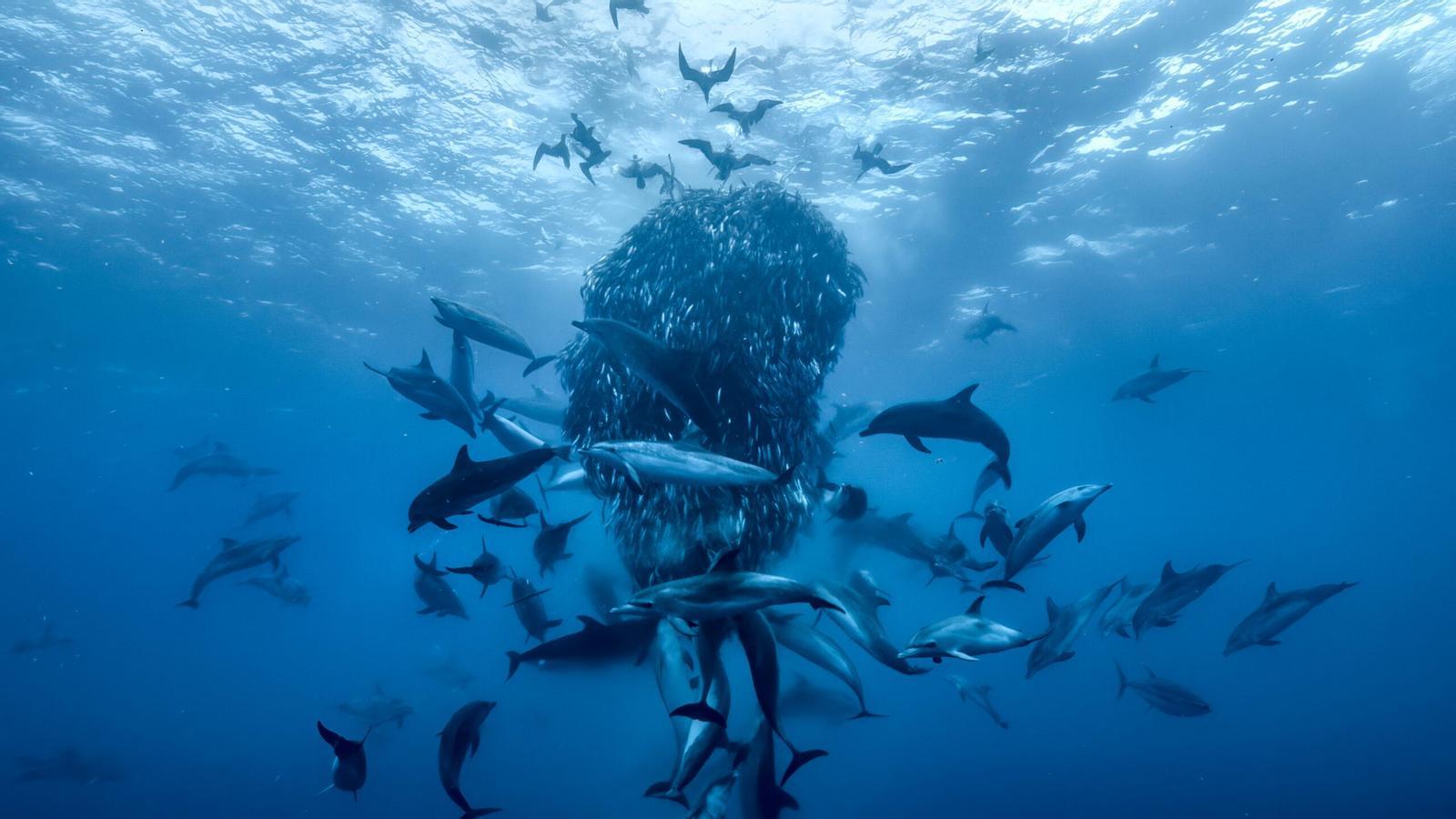

Sir David Attenborough opens his documentary Ocean with a sentence: "After almost a century on this planet, I now understand that the most important place is not the land but the sea." He says this from the sand of an Atlantic Ocean beach and, with his ability to listen, tells us about the mysteries that have historically surrounded the seabed. "We live in the era of the greatest oceanic discoveries. For many of us, the marine world remains dark, feared, and dangerous, far from our sight and, without a doubt, beyond our imagination," says Attenborough, who reminds us that humankind has explored other planets more than the ocean floor.
The British broadcaster, with a career spanning more than seventy years at the BBC (although he theoretically retired in the late nineties), continues to work for the defense of the environment through new documentaries linked to National Geographic. Ocean with David Attenborough You'll find it on the Disney+ platform. An hour and a half documentary that will have a hypnotic and relaxing power over you. In the age of artificial intelligence, in which we doubt all the images we find fascinating, Ocean It transports us to a real world that we might believe is virtual. The naturalist puts his magnifying glass and microscope to the underwater mountains, and we discover the eyes of surprising creatures. A whole geography full of submerged forests, meadows, and jungles with which we are more interconnected than we think. If you have children, place them in front of the screen, because they will be captivated by the images. Music, as is usual in Attenborough's majestic documentaries, plays a decisive role in accentuating the emotions of everything we see: fear, suspense, action, danger, joy, calm, tension... Ocean It becomes a film that stimulates our senses, with spectacular image treatment. The veteran narrator uses his extensive experience to tell us about the transformations of the planet and the challenges of climate change. He does so from an alarming but not catastrophic perspective. Attenborough always conveys a final glimmer of hope and places the responsibility on human beings. And he gives us good news: the oceans' capacity to recover faster than we think if we are sensitive to their needs. His mission is to make us aware of the point we are at, not through abstract theories but by marveling and discovering a world we ignore but that is essential. The script allows us to understand how our lives depend on everything that happens in the water. He calls the oceans "the last great frontier." Take advantage of this privileged window into an unattainable world, because by the end of the documentary, you won't see the Earth the same way.
